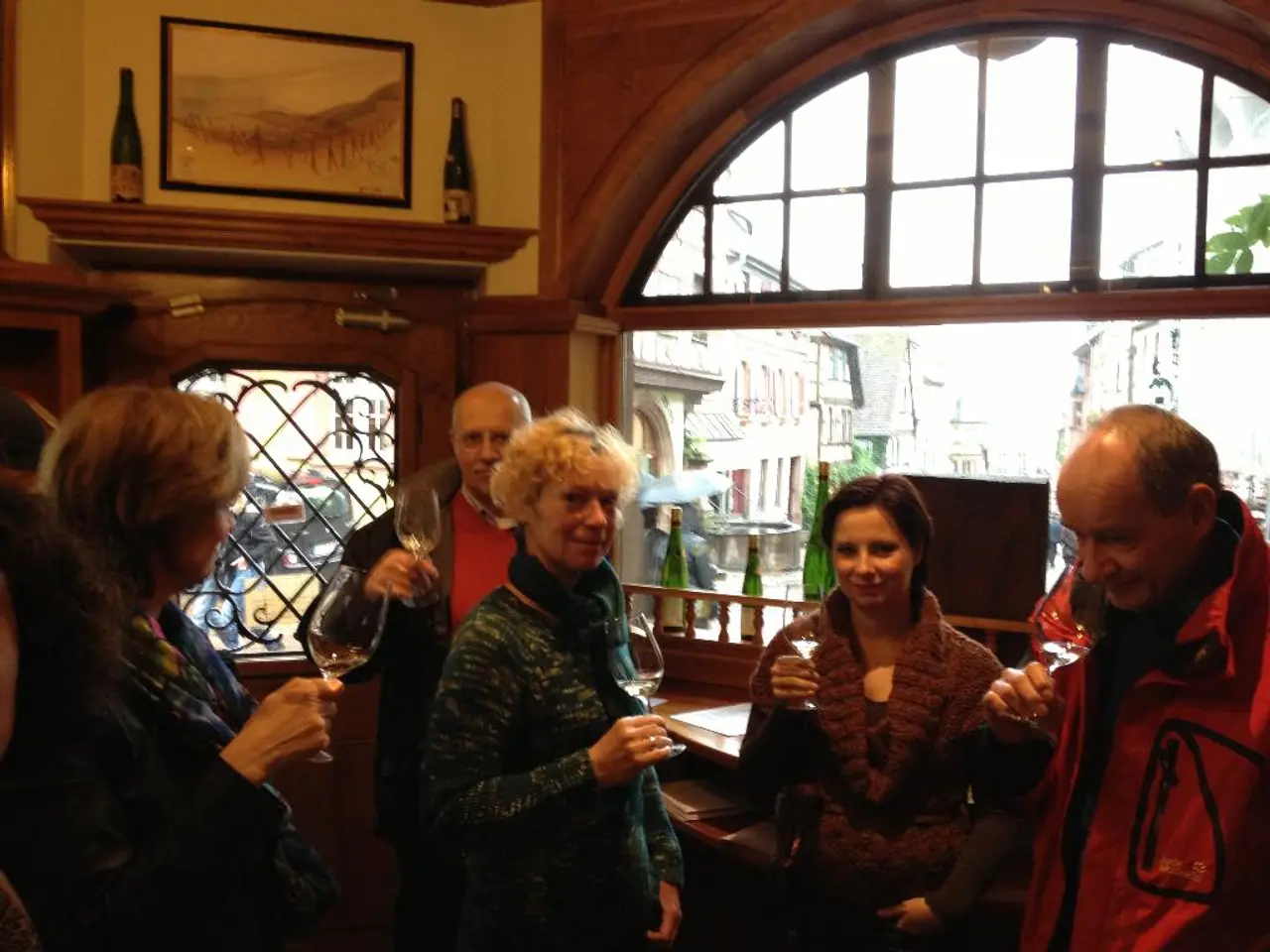Eliminating liquor tax for sales in taverns, saloons, and eateries advocated for
In a recent statement, Marcus Calvani, co-chief executive of the Jersey Hospitality Association, has called for the removal of alcohol duty from on-trade sales in Jersey. This move, he argues, could stimulate growth, support the visitor economy, and change consumer behaviour.
According to Calvani, the savings from the tap relief for a standard 30-liter keg of 4.6% beer at a trade price of £180 would be £3.41, or about 22p off a £6.50 pint. However, he emphasises that this is a small gesture, not a game-changer. The impact of the tap relief at the bar, he points out, is tiny and barely noticeable for consumers, while the difference in margin for a venue to break even or make a profit comes from other costs such as shipping, utilities, wages, and more.
Calvani argues that the removal of alcohol duty from on-trade sales could cause the price of a 4.6% pint to fall by around £1.20. This, he believes, could help reduce the incentive to pre-drink and bring islanders back to pubs, potentially increasing revenue for the hospitality industry.
The price gap between pub and shop could shrink from three times to less than two if alcohol duty is removed from on-trade sales, according to Calvani. He highlights that a lively visitor economy would result from a thriving hospitality industry, generating jobs, supporting supply chains, and injecting energy into the social fabric.
The government's draft Budget states that alcohol duty would be raised "in line with RPI growth" at 2.6%. However, Calvani argues that the reduction in duty take from removing alcohol duty from on-trade sales would be offset by a higher GST yield on greater sales.
The proposal to completely abolish the alcohol tax for sales in the gastronomic sector, aiming to reduce pre-drinking and bring island residents back to pubs, was suggested in discussions about pub closures in Great Britain, but the exact name of the person is not provided in the available sources.
Calvani has also pointed out that the reduction in duty would not simply solve the problem of rising costs. He states that these costs cannot simply be absorbed, or the venue would go bust. He emphasises that a thriving hospitality industry is crucial for the economy and society as a whole.
In conclusion, the proposal to remove alcohol duty from on-trade sales in Jersey is a contentious issue, with supporters arguing that it could stimulate growth, support the visitor economy, and change consumer behaviour, and critics stating that it would not solve the problem of rising costs. The debate continues, with both sides presenting compelling arguments.




